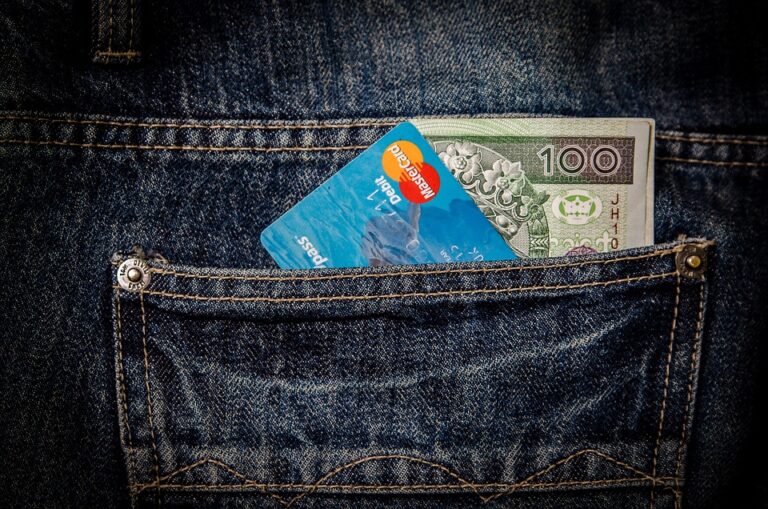Last updated Mar. 12, 2023 by Benedict Osas
A savings account is a kind of financial product that allows you to deposit your money for later use and earn a certain amount as interest over time. Meaning with a savings account, you get to put money aside for later use.
You can open a savings account at a bank or credit union. You don’t even need to have much money before opening one.
There are particular concerns still attached to savings accounts, including how a savings account works, whether you can lose money in a savings account if inflation affects savings, and many others.
In this article, we will address these concerns, so you can know everything there’s to know about a savings account. So, can you loose money in a savings account? Let’s see.
How Does A Savings Account Work?
The principle on which a saving account operates is relatively easy. After opening this type of account at a bank or credit union, either physically or online, you can start depositing the money you want to save into it and start earning interest.
You can deposit money into your savings account using different methods. However, the method you decide to choose will ultimately depend on the bank.
You can deposit cash in a savings account by direct deposit, mobile check deposit, wire transfers from another bank, ACH transfers from a linked bank account, or cash or check deposits at the ATM or a branch.
The amount you earn on the money deposited in your savings accounts as interest will depend on certain factors. Some of these factors include; your savings account’s Annual Percentage Yield (APY), the amount of money you deposit, and the duration of time the money is used in your account.
Savings Account Annual Percentage Yield (APY)
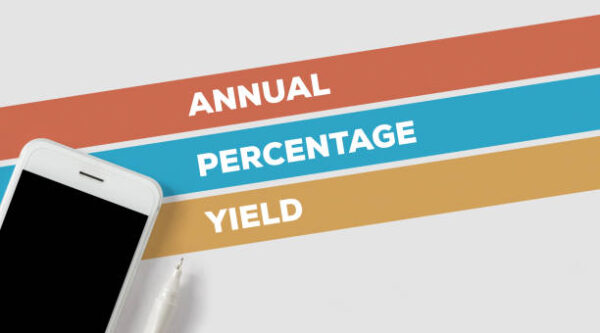
Your savings account APY is the rate of interest earned on the savings in your account when compounding interest is factored in.
In addition, APY differs by bank and type of account. For example, your bank can decide to compound interest daily, monthly, quarterly, or yearly. At the expiration of the compounding period, your bank opts for your accumulated interest, which is deposited into your savings account.
From there, your new account balance, the original deposit in addition to the interest, will begin accumulating interest again. That’s how savings accounts work.
Let’s use an instance to further clarify things for you. You deposit $1,000 into your savings account, and your bank compounds interest annually. With an APY of 0.05 percent, you would earn $0.5 as interest at the end of the year, and your new balance will be $1,000.5.
But with high-yield savings account with 0.5 percent APY, you earn $5 as your interest at the end of the year, and your new balance will be $1,005. Then, your new balance will start to earn interest; your money will grow faster if your bank has a shorter compounding period.
High Yield Savings Account?
The high-yield savings account has a higher APY than the regular one. As a result, interest rates on high-yield savings accounts can be about ten and sometimes up to 20 times more than that of the regular savings account.
Additionally, If you’re thinking about opening a high-yield savings account, you should consider interest rates, initial deposit requirements, minimum balance requirements, and any other fees that might be attached.
You might also want to consider deposit options, compounding period, and accessing your money.
How Does Inflation Affect Savings?
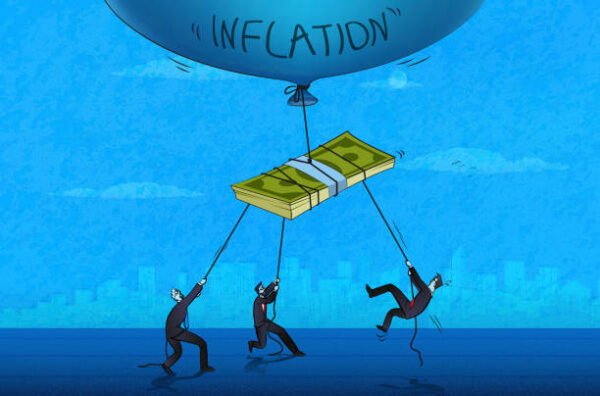
Inflation affects your savings when the rate exceeds that of the interest earned on a savings account. To understand how this happens, let’s use a circumstance. Let’s say you have $1000 in a savings account that pays 1% as interest annually. You’ll have $1,010 as your new balance at the end of the year. And if the inflation rate is at 2%, you will need to have $1,020 to have the same purchasing power that you started with.
You might think you gained $10 on your savings after a year, but in reality, you’re losing purchasing power due to inflation.
So, at any point in time when your savings account isn’t growing at the same rate as inflation, you will be losing money.
Is There A Risk In Losing Money In A Savings Account?
There’s no risk of losing money when you put your money in a savings account. And it helps that this type of account is similar to checking accounts that are FDIC insured; that is, the bank insures your money up to $250,000 such that when your bank goes out of business, you still won’t lose your money.
The only drawback with savings accounts is that the money you deposited in the savings account won’t grow much. So, you can’t build wealth from savings and money losses over time, especially in inflation and economic downturn cases.
How Do You Lose A Savings Account?
You can lose a savings account by closing it. If for any reason, you want to close your savings account, the process may vary with banks. The steps usually involved include:
- If your savings account hasn’t been used for a long while and it’s already dormant, you will need to activate it before closing it.
- Stop all automatic payments from the savings account you want to close instantly and link the payment process to another account.
- Then, transfer all the money you’ve got in the account you want to close to another one.
- Unlink any credit card, loan, Demat account, or other card linked to the account.
- Have all your necessary official documents ready.
- If you operate a joint savings account, then both account holders must be present during the process. However, some banks accept a “No Objection Certificate” (NOC) in the absence of a partner.
- Go to the bank in person, except if it’s an online bank. Fill out the account closure form gotten from the bank or the online bank website. Then, submit all the required documents, and you will be charged a closure fee.
- Banking officials will then review your account history, and if there are any charges, pending dues, or fines against your account, you will have to pay.
- After paying any outstanding payment, you will be given an account closure acknowledgment. And when your account is closed, The bank will notify you through SMS or email. This usually takes between 7 to 10 working days.
Should I Keep $100K In Savings?

Keeping $100k in savings will ultimately depend on you, your income, and your financial plan. If you think you will need a large sum of money shortly, let’s say to buy a house, then this kind of money should be kept in a savings account where there’s no risk of losing it.
It is also suggested for you to have about 3 to 12 months of living expenses in a zero-risk account like a savings account.
Apart from these reasons for needing to keep the money safe for a short period, it’s also better to diversify your income and invest for higher returns to build wealth over time.
Can You Lose Money In Savings Account?
You can never lose the money you’ve saved in your savings account or interest for any reason. But the money in the account might lose purchasing power over time.
So, if you earn 0.1% APY on your savings account and inflation is at a 1% annual rate, then you would get a 0.9% decline in buying power over a year.
Apart from the money losing its value over time, there are some ways you might be losing money in a savings account:
- Poor interest rate
Most banks don’t offer high-interest rates. However, some online banking systems do, with even better interest rates when compared to these physical banks.
You should ensure to look around to get higher rates. This is to avoid losing more money instead of earning interest in the long run.
- Fees
Certain banks charge a fee for essential things ranging from low balances, overdrafts, frequent deposits, or wanting to use your ATM card at another bank.
You will sacrifice your hard-earned money if you have a savings account in a bank like this. If you don’t want that, I suggest you start looking for other places. Who knows, you might find savings accounts that offer lesser/no minimum or fees.
Pros of A Savings Account
There are several advantages associated with keeping money in a savings account. Some of them include:
- Simple To Open
Opening a savings account is very easy, whether at the bank, credit union, or even online banks. You can easily apply and complete the process of application within minutes.
- You Earn Interest
A significant benefit that comes with using a savings account is earning interest on the money you deposit into the account. Traditional savings accounts offer a small Annual Percentage Yield (APY). But online savings accounts pay a higher APY, as much as 20 times that of conventional savings accounts.
- There’s Zero Risk
Another thing you will like about the savings account is its no-risk feature. This type of account keeps your money completely safe, and you won’t have to worry about losing your money.
With a savings account, you can earn interest with no risk even though the return isn’t as high as that of higher-risk interest-earning accounts.
- It Is FDIC-insured
Many measures are put in place to keep your money safe in a savings account. One of which is the Federal Deposit Insurance Corporation (FDIC). If you have a savings account with an FDIC-insured bank and credit union, your money will be insured for up to $250,000. So that in the event that such a bank goes bankrupt, you won’t lose your money.
- The Funds Are Easily Accessible
You can easily access the money in your savings account as the money stays liquid in this type of account. You also get to manage your money by yourself online and schedule transfers and withdrawals as you desire.
Cons of A Saving Account
There are some downsides associated with a savings account, and they include:
- Fees
A major disadvantage associated with savings accounts is the number of fees certain financial institutions incur on your money that affects your balance over time.
For instance, you can be charged a monthly fee if your account balance is lesser than the minimum balance requirement of your account.
- Saving Account Restrictions
There are many limitations to saving accounts. Some of these restrictions include minimum balance, withdrawal limits, deposit requirements, and others that might not favor you, especially if you are new to savings account usage.
- Low Annual Percentage Yield
A savings account is a zero-risk account with usually low APYs compared to other interest-yielding options with a certain level of risk.
How To Maximize Your Earnings From A Savings Account
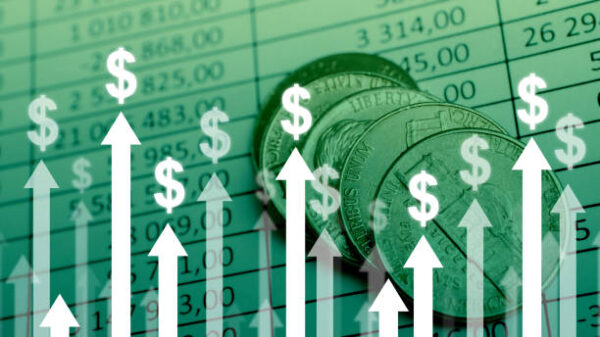
Outlined below are some tips you can adopt to help you increase your earnings from a savings account even though the interest rate is generally low.
Some of these ways include:
- Opt for online banks
The traditional banks don’t offer the kind of APYs online banks offer. Online banks don’t have to cater for expenses like buildings and so on that traditional banks cater for. So they usually have few to no fees attached.
It is better to go for an online savings account to maximize your earnings.
- Watch out for fees
Some of these banks initially attract you with lesser fees, discounts, and that sort of thing. But if you are not careful, they charge you all kinds of costs that eventually take away all your interest. You can shop around to find savings accounts with minimal fees attached.
- Consider credit unions
Credit unions tend to offer better yields than any other financial institution. This is because these kinds of financial institutions are nonprofit and members owned. They often offer higher rates with minimal fees attached, so you can go for this option to boost your earnings.
- Give it time
If you open a savings account to set some amount of money aside for later use, you should leave it for that intended use. By doing this, you leave time for the power of compounding interest to take effect, improving your interests and increasing your savings with time.
Frequently Asked Questions On Losing Money In A Savings Account
Below are questions asked by people who want to know more about this topic and the answers. I guess you should continue reading to find out.
How Much In Savings Is Too Much Cash?
Once you’ve saved up for emergencies and short-term goals, putting any other money aside for these two agendas is too much cash for savings. So instead, I’ll recommend you put any additional money into investments so you can earn better returns than savings.
Is It Better To Keep Money In Savings Or Checking Accounts?
Which option you decide to choose will depend on what you plan to use the money for. For example, if you plan on keeping the money for later use, then it’s better to keep it in a savings account so that it can accrue decent interest this way.
However, You should deposit the money you plan to use for your day-to-day expenses in a checking account.
Why A Savings Account Is Essential
A savings account helps keep your money away from your spending account and assists you in achieving your financial goals faster. That’s why you ought to ensure to look out for the best savings accounts.
Although a savings account can’t help you grow your wealth, it will keep your money safe with no risk, even though it might lose value and purchasing power over time.

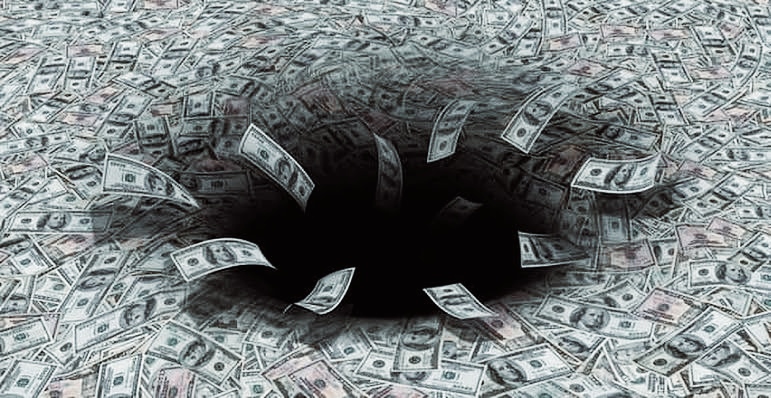
![How To Find Companies That Pay For Ideas [+ List of the Best]](https://paypant.com/wp-content/uploads/2024/06/How-To-Find-Companies-That-Pay-For-Ideas-List-768x512.jpg)
